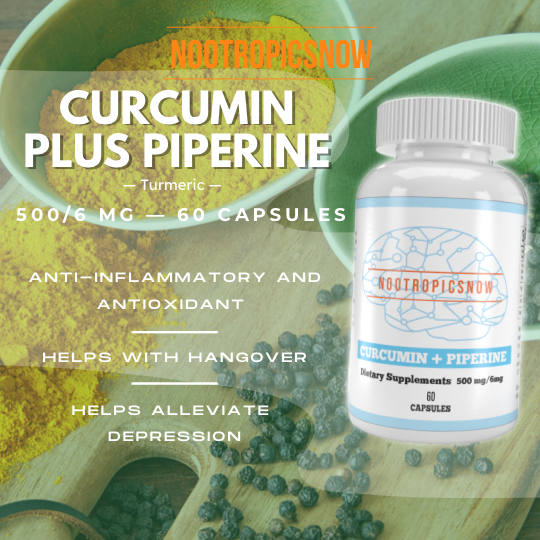Memory Enhancement Drugs: Do They Work?

Drugs for Memory Enhancement: A Detailed Exploration

Memory enhancement is a widely sought-after goal, particularly as individuals age or face cognitive challenges. Several drugs and supplements claim to improve memory and cognitive function. However, understanding their mechanisms, benefits, and risks is crucial before incorporating them into any regimen. This section provides a comprehensive overview of drugs marketed for memory enhancement.
Prescription Medications for Memory Impairment
Several prescription medications are available for managing cognitive decline and enhancing memory, primarily focusing on conditions like Alzheimer’s disease. These drugs often target specific neurotransmitter systems in the brain to improve cognitive function.
Cholinesterase Inhibitors: Boosting Acetylcholine Levels
Cholinesterase inhibitors represent a cornerstone in treating Alzheimer’s disease. These medications work by preventing the breakdown of acetylcholine, a neurotransmitter vital for memory, learning, and attention. By increasing acetylcholine levels in the brain, these drugs can help improve cognitive function, albeit temporarily.
Types of Cholinesterase Inhibitors
Several cholinesterase inhibitors are available, each with slightly different properties and dosing schedules. Commonly prescribed options include:
Efficacy and Considerations
While cholinesterase inhibitors can provide symptomatic relief, they do not cure Alzheimer’s disease or halt its progression. Therefore, their benefits are typically modest and may diminish over time. Additionally, these medications can cause side effects, which may limit their use in some individuals.
Common Side Effects
Common side effects associated with cholinesterase inhibitors include nausea, vomiting, diarrhea, loss of appetite, and muscle cramps. These side effects are usually mild and temporary but can sometimes require dose adjustments or discontinuation of the medication.
NMDA Receptor Antagonists: Regulating Glutamate Activity
N-methyl-D-aspartate (NMDA) receptor antagonists are another class of drugs used to treat Alzheimer’s disease. These medications work by regulating the activity of glutamate, a neurotransmitter involved in learning and memory. Excessive glutamate activity can lead to neuronal damage, so these drugs help protect brain cells by modulating glutamate levels.
Memantine (Namenda): Reducing Glutamate Excitotoxicity
Memantine is the primary NMDA receptor antagonist used to treat Alzheimer’s disease. It’s often prescribed for moderate to severe stages of the disease and can be used in combination with cholinesterase inhibitors. Memantine helps improve cognitive function and daily living activities by preventing excessive glutamate-induced neuronal damage.
Combination Therapy: Donepezil and Memantine (Namzaric)
A combination drug containing both donepezil (a cholinesterase inhibitor) and memantine is available under the brand name Namzaric. This medication offers a convenient way to address both acetylcholine and glutamate systems simultaneously, potentially providing greater cognitive benefits.
Side Effects of NMDA Receptor Antagonists
Side effects associated with NMDA receptor antagonists are generally mild and may include dizziness, headache, constipation, and confusion. These side effects are less common than those associated with cholinesterase inhibitors.
Aducanumab (Aduhelm) and Lecanemab (Leqembi): Targeting Amyloid Plaques
Aducanumab and Lecanemab are monoclonal antibodies designed to target amyloid plaques in the brain, a hallmark of Alzheimer’s disease. These drugs represent a new approach to treating the underlying pathology of the disease, rather than just managing the symptoms. However, their efficacy and safety have been subjects of intense debate.
Mechanism of Action
These medications bind to amyloid plaques and promote their clearance from the brain. The hope is that reducing amyloid plaques will slow cognitive decline in individuals with early-stage Alzheimer’s disease.
Clinical Trial Results and Controversies
Clinical trials of aducanumab and lecanemab have shown mixed results. Some trials suggested a modest slowing of cognitive decline, while others did not. Moreover, these drugs are associated with significant risks, including amyloid-related imaging abnormalities (ARIA), which can cause brain swelling and bleeding. Because of safety concerns, lecanemab has become the more favored of the two options.
Regulatory Approval and Access
Aducanumab received accelerated approval from the FDA, despite concerns about its efficacy. Lecanemab also received FDA approval. However, access to these drugs is limited due to their high cost, potential side effects, and the need for regular monitoring. These are usually indicated only for individuals with mild cognitive impairment due to Alzheimer’s disease.
Natural Supplements and Over-the-Counter Options
While prescription medications play a crucial role in managing cognitive decline, several natural supplements and over-the-counter options are often touted for their memory-enhancing properties. These supplements are generally considered safe, but their efficacy is often less well-established than that of prescription medications.
Ginkgo Biloba: Enhancing Blood Flow and Cognitive Function
Ginkgo biloba is an herbal extract derived from the Ginkgo tree. It has been used for centuries in traditional medicine for its cognitive-enhancing properties. Ginkgo biloba is believed to improve blood flow to the brain, protect against oxidative stress, and enhance neurotransmitter function.
Potential Benefits
Some studies suggest that ginkgo biloba may improve memory, attention, and cognitive speed, particularly in individuals with age-related cognitive decline. However, other studies have shown mixed results, and more research is needed to confirm its efficacy.
Dosage and Side Effects
The typical dosage of ginkgo biloba is 120-240 mg per day, divided into multiple doses. Side effects are generally mild and may include headache, dizziness, and gastrointestinal upset.

View Product
Omega-3 Fatty Acids: Supporting Brain Health
Omega-3 fatty acids, particularly EPA (eicosapentaenoic acid) and DHA (docosahexaenoic acid), are essential nutrients that play a vital role in brain health. These fatty acids are found in fatty fish, such as salmon and tuna, and are also available as supplements.
Benefits for Memory and Cognition
Omega-3 fatty acids are believed to support brain structure and function, reduce inflammation, and protect against cognitive decline. Some studies suggest that omega-3 supplementation may improve memory, learning, and cognitive performance, especially in older adults.
Dietary Sources and Supplements
Aim to consume at least two servings of fatty fish per week to obtain adequate omega-3 fatty acids. If dietary intake is insufficient, consider taking an omega-3 supplement containing at least 500 mg of EPA and DHA per day.
Safety and Side Effects
Omega-3 fatty acids are generally safe, but high doses may cause gastrointestinal side effects or increase the risk of bleeding.
Vitamin E: Protecting Against Oxidative Stress
Vitamin E is a powerful antioxidant that helps protect brain cells from damage caused by free radicals and oxidative stress. Oxidative stress is implicated in age-related cognitive decline, so vitamin E may help preserve cognitive function.
Forms of Vitamin E
Vitamin E exists in several forms, including alpha-tocopherol, which is the most biologically active form. It is important to choose supplements with this form.
Cognitive Benefits and Research
Some studies have shown that vitamin E supplementation may improve memory and cognitive performance, particularly in individuals with mild cognitive impairment. However, other studies have yielded conflicting results, and more research is needed.
Dosage and Considerations
The recommended daily intake of vitamin E is 15 mg. However, some individuals may benefit from higher doses under the supervision of a healthcare provider. High doses of vitamin E may increase the risk of bleeding, so it is essential to stay within recommended limits.
Phosphatidylserine: Supporting Cell Membrane Health
Phosphatidylserine (PS) is a phospholipid that is a component of cell membranes, especially in the brain. It plays a role in cell signaling and neurotransmitter release. As such, PS is critical for maintaining healthy neuronal function and cognitive abilities.
Cognitive Health
Some evidence suggests that PS supplementation may improve memory, attention, and cognitive performance, especially in age-related cognitive decline. PS may help enhance communication between brain cells, leading to better memory and cognitive function.
Lifestyle Factors and Cognitive Health
While medications and supplements can play a role in memory enhancement, lifestyle factors are also crucial for maintaining cognitive health. Engaging in regular exercise, eating a healthy diet, getting enough sleep, and managing stress can all contribute to better memory and cognitive function.
Physical Exercise
Regular physical exercise increases blood flow to the brain, stimulates the growth of new brain cells, and improves cognitive function. Aim for at least 30 minutes of moderate-intensity exercise most days of the week.
Healthy Diet
A healthy diet rich in fruits, vegetables, whole grains, and lean protein provides the nutrients your brain needs to function optimally. Limit your intake of processed foods, sugary drinks, and saturated fats, which can harm cognitive function.
Adequate Sleep
Getting enough sleep is essential for memory consolidation and cognitive performance. Aim for 7-8 hours of sleep per night to allow your brain to rest and repair itself.
Stress Management
Chronic stress can impair cognitive function and increase the risk of cognitive decline. Practice stress-management techniques, such as meditation, yoga, or deep breathing exercises, to reduce stress and protect your brain health.
Cognitive Stimulation
Engaging in mentally stimulating activities, such as reading, puzzles, and learning new skills, can help keep your brain active and improve cognitive function.
Conclusion: A Holistic Approach to Memory Enhancement
Memory enhancement is a complex process that involves multiple factors, including genetics, lifestyle, and underlying health conditions. While prescription medications and natural supplements can play a role in improving memory and cognitive function, they are not a substitute for a healthy lifestyle. By adopting a holistic approach that combines medication, supplements, lifestyle modifications, and cognitive stimulation, individuals can optimize their brain health and maintain cognitive function throughout their lives. Consulting with a healthcare provider is crucial before starting any new medication or supplement regimen, particularly for individuals with underlying health conditions or those taking other medications.
Drugs for Memory Enhancement: An In-Depth Look
Memory enhancement has become a focal point of research and development in recent years. As a result, numerous drugs and supplements claim to boost cognitive function and memory retention. However, it is important to understand the science behind these substances, their potential benefits, and their associated risks. This section will delve into the various pharmaceutical and natural compounds that are being explored for their memory-enhancing properties. We will also discuss their mechanisms of action, effectiveness, and potential side effects.
Prescription Medications for Memory Enhancement
Several prescription drugs are currently used to treat memory loss associated with conditions like Alzheimer’s disease and dementia. These medications primarily focus on managing symptoms and slowing down the progression of the disease. They do not offer a cure, but they can significantly improve the quality of life for affected individuals.
Cholinesterase Inhibitors: Boosting Acetylcholine Levels
Cholinesterase inhibitors are among the most commonly prescribed drugs for managing memory loss. They function by preventing the breakdown of acetylcholine, a neurotransmitter crucial for learning and memory processes. By increasing acetylcholine levels in the brain, these medications aim to enhance communication between nerve cells, thereby improving cognitive function.
Donepezil (Aricept): Donepezil stands out as a widely prescribed cholinesterase inhibitor approved for treating all stages of Alzheimer’s disease. This drug works by selectively inhibiting acetylcholinesterase, the enzyme responsible for breaking down acetylcholine. As a consequence, acetylcholine levels rise, enhancing nerve cell communication. Typical dosages range from 5mg to 10mg daily, depending on the individual’s response and tolerance to the medication.
Rivastigmine (Exelon): Rivastigmine represents another potent cholinesterase inhibitor approved for treating mild to moderate Alzheimer’s disease, as well as Parkinson’s disease dementia. Unlike donepezil, rivastigmine inhibits both acetylcholinesterase and butyrylcholinesterase, another enzyme involved in acetylcholine breakdown. It is available in both oral and transdermal patch formulations, allowing for flexible administration. The transdermal patch provides a steady release of the drug, potentially minimizing side effects associated with fluctuating blood levels.
Galantamine (Razadyne): Galantamine is a dual-action drug that both inhibits acetylcholinesterase and modulates nicotinic acetylcholine receptors. This modulation can enhance the release of acetylcholine, further boosting its availability in the brain. Galantamine is approved for treating mild to moderate Alzheimer’s disease. Starting dosages are typically low, gradually increasing to achieve optimal therapeutic effects while minimizing potential side effects.
Side Effects of Cholinesterase Inhibitors
Despite their benefits, cholinesterase inhibitors are not without potential side effects. Common side effects include nausea, vomiting, diarrhea, loss of appetite, and weight loss. These gastrointestinal issues can be particularly problematic for some individuals, potentially leading to discontinuation of the medication. Other less common side effects include muscle cramps, fatigue, and sleep disturbances. Careful monitoring and dose adjustments are essential to manage these side effects effectively.
| Side Effect | Description | Management |
|---|---|---|
| — | — | — |
| Nausea/Vomiting | Feeling sick to the stomach, potentially leading to emesis | Take medication with food, adjust dosage |
| Diarrhea | Frequent loose stools | Stay hydrated, adjust dosage |
| Loss of Appetite | Reduced desire to eat | Eat smaller, more frequent meals, nutritional supplements |
| Muscle Cramps | Involuntary muscle contractions | Stay hydrated, electrolyte supplementation |
| Fatigue | Feeling tired or weak | Get adequate rest, exercise regularly |
NMDA Receptor Antagonists: Regulating Glutamate Activity
Another class of drugs used for memory enhancement targets the glutamate system in the brain. Glutamate is an excitatory neurotransmitter that plays a crucial role in learning and memory. However, excessive glutamate activity can lead to excitotoxicity, damaging nerve cells and impairing cognitive function. NMDA receptor antagonists work by regulating glutamate activity, protecting nerve cells from excessive stimulation.
Memantine (Namenda): Memantine is an NMDA receptor antagonist approved for treating moderate to severe Alzheimer’s disease. It works by blocking the NMDA receptor, preventing excessive glutamate from binding and overstimulating nerve cells. This helps to reduce excitotoxicity and protect nerve cells from damage. Memantine can be used alone or in combination with cholinesterase inhibitors for enhanced therapeutic effects.
Combination Therapy (Namzaric): Namzaric is a combination drug containing both donepezil (a cholinesterase inhibitor) and memantine (an NMDA receptor antagonist). This combination provides a dual-action approach to managing memory loss, addressing both acetylcholine and glutamate systems in the brain. Namzaric is approved for treating moderate to severe Alzheimer’s disease. It simplifies medication management by combining two drugs into a single pill.
Side Effects of NMDA Receptor Antagonists
Common side effects of NMDA receptor antagonists include dizziness, headache, constipation, and confusion. These side effects are generally mild and well-tolerated, but they can be bothersome for some individuals. In rare cases, more serious side effects such as hallucinations or seizures may occur. Careful monitoring and dose adjustments are essential to manage these potential side effects.
| Side Effect | Description | Management |
|---|---|---|
| — | — | — |
| Dizziness | Feeling lightheaded or unsteady | Move slowly, avoid sudden movements |
| Headache | Pain in the head | Over-the-counter pain relievers |
| Constipation | Difficulty passing stools | Increase fiber intake, drink plenty of water |
| Confusion | Difficulty thinking clearly | Monitor mental status, adjust dosage |
Monoclonal Antibodies: Targeting Amyloid Plaques
A newer class of drugs for Alzheimer’s disease targets amyloid plaques, abnormal protein deposits that accumulate in the brain and disrupt nerve cell function. Monoclonal antibodies are designed to bind to and remove these plaques, potentially slowing down the progression of the disease.
Aducanumab (Aduhelm): Aducanumab was the first monoclonal antibody approved by the FDA to treat Alzheimer’s disease. It targets amyloid plaques in the brain and helps to remove them. However, aducanumab’s approval was controversial due to limited evidence of clinical benefit and concerns about potential side effects. It has since been discontinued.
Lecanemab (Leqembi): Lecanemab represents a more recent monoclonal antibody approved for treating early-stage Alzheimer’s disease. It works by targeting and removing amyloid plaques from the brain, potentially slowing cognitive decline. Lecanemab has shown more promising clinical trial results compared to aducanumab, but it still carries risks of side effects.
Side Effects of Monoclonal Antibodies
Monoclonal antibodies can cause serious side effects, including amyloid-related imaging abnormalities (ARIA), such as brain swelling and bleeding. These side effects require careful monitoring with regular MRI scans. Other potential side effects include infusion-related reactions, headache, and allergic reactions.
| Side Effect | Description | Management |
|---|---|---|
| — | — | — |
| ARIA (Brain Swelling/Bleeding) | Abnormalities seen on MRI scans | Regular MRI monitoring, medication adjustments |
| Infusion-Related Reactions | Symptoms during or shortly after infusion | Slow infusion rate, administer medications |
| Headache | Pain in the head | Over-the-counter pain relievers |
| Allergic Reactions | Symptoms such as rash, itching, swelling | Administer antihistamines, epinephrine |
Over-the-Counter Supplements for Memory Enhancement
In addition to prescription medications, numerous over-the-counter supplements claim to enhance memory and cognitive function. These supplements often contain natural ingredients believed to have neuroprotective or cognitive-enhancing properties. However, it is important to note that the scientific evidence supporting their effectiveness is often limited.
Ginkgo Biloba: Enhancing Blood Flow to the Brain
Ginkgo biloba is a popular herbal supplement extracted from the leaves of the Ginkgo biloba tree. It is believed to improve cognitive function by increasing blood flow to the brain, acting as an antioxidant, and reducing inflammation. Some studies have suggested that ginkgo biloba may improve memory and cognitive performance, particularly in individuals with age-related cognitive decline.

View Product
Dosage: Typical dosages range from 120mg to 240mg per day.
Side Effects: Common side effects include headache, dizziness, stomach upset, and allergic reactions. Ginkgo biloba can also interact with blood-thinning medications, increasing the risk of bleeding.
Vitamin E: Protecting Against Oxidative Stress
Vitamin E is a fat-soluble antioxidant that protects cells from damage caused by free radicals. Oxidative stress is believed to contribute to age-related cognitive decline, and vitamin E may help to mitigate this effect. Some studies have suggested that vitamin E supplementation may improve cognitive function and reduce the risk of Alzheimer’s disease.
Dosage: Typical dosages range from 400 IU to 800 IU per day.
Side Effects: High doses of vitamin E may increase the risk of bleeding, particularly in individuals taking blood-thinning medications. Other potential side effects include nausea, diarrhea, and fatigue.
Omega-3 Fatty Acids: Supporting Brain Health
Omega-3 fatty acids, particularly EPA and DHA, are essential for brain health and function. They are found in fatty fish, such as salmon, tuna, and mackerel, as well as in supplements like fish oil and krill oil. Omega-3 fatty acids play a crucial role in cell membrane structure, nerve cell communication, and inflammation regulation. Studies have shown that omega-3 fatty acids may improve cognitive function, memory, and mood.
Dosage: Typical dosages range from 1000mg to 2000mg per day, providing a combination of EPA and DHA.
Side Effects: High doses of omega-3 fatty acids may cause gastrointestinal upset, such as nausea, diarrhea, and fishy burps. They can also interact with blood-thinning medications, increasing the risk of bleeding.
Other Natural Supplements
Numerous other natural supplements are being explored for their potential memory-enhancing properties. These include:

View Product
It is essential to approach these supplements with caution and consult a healthcare provider before starting any new regimen. The effectiveness of these supplements can vary, and they may interact with other medications or have potential side effects.
Lifestyle Modifications for Memory Enhancement
In addition to medications and supplements, lifestyle modifications play a crucial role in maintaining and enhancing memory and cognitive function. These modifications include:
Conclusion
Memory enhancement is a complex field with numerous approaches, including medications, supplements, and lifestyle modifications. While prescription medications can help to manage memory loss associated with conditions like Alzheimer’s disease, natural supplements and lifestyle changes can play a supportive role in maintaining and enhancing cognitive function. It is crucial to consult a healthcare provider before starting any new medication or supplement regimen and to adopt a holistic approach that encompasses both medical and lifestyle interventions.



